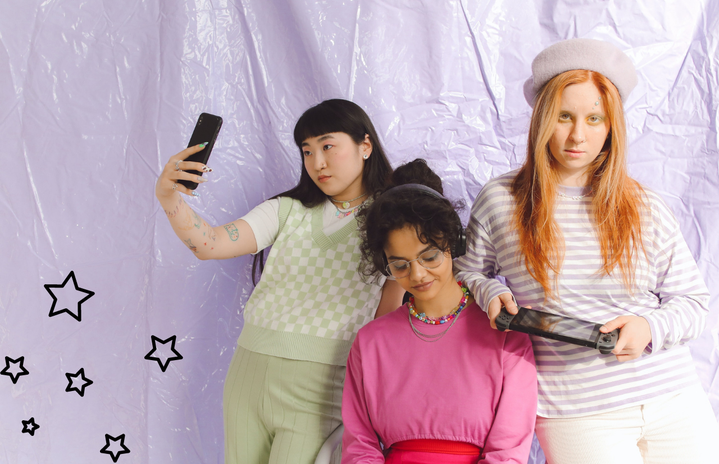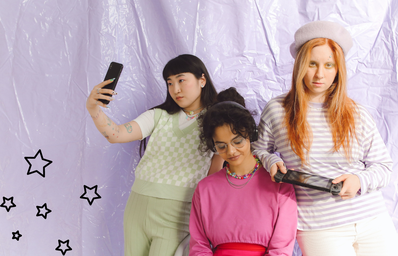As they get older—due to the developments that happen during puberty—many girls naturally become extremely aware of the many differences between themselves and their counterparts. I, myself, was one of these girls and as I started sixth grade, I slowly became aware of my body.
Starting middle school was like eating the forbidden fruit, and like Eve was to her nakedness, I was to my body. The tugging of my shirt to cover my butt and thighs, the hair that grew on my legs and the arms and skin that covered every inch of my body were things I was no longer blind to. I didn’t know it then, but something was in the air; and like Christmas in December, everywhere I went, it was there.
In the years of 2015-2017, body positivity slowly but quickly swept through what felt like every piece of media and marketing on the planet. You could not watch a single movie, buy a single product or read a single book without consuming the preaching of self-love and kindness. Which, at the time, spoke heavily of confidence, beauty and the concept of not judging books by their covers. I can recall movies like Stephen Chbosky’s “Wonder” and songs like Alessia Cara’s “Scars to Your Beautiful” being one of many forms of entertainment that highlighted this shift in media.
As this newfound age of self-love gained popularity, many companies, celebrities and influencers began to follow suit, and in what felt like a span of months it grew into a standard for any person or brand that was attempting to sell a product. This shift did not stop at brands, and partially due to celebrity influence, developed into a standard amongst individuals. This does not mean that individuals weren’t unkind or disrespectful, but the actions within themselves were frowned upon in the public eye. Cancel culture had stepped onto the scene and with media platforms seemingly multiplying, people developed more heightened senses of awareness to what they said and did.
Many of the observations I’ve noticed come from online media. I feel that it is extremely difficult for any teen or young adult to be off of social media entirely. While I know people who aren’t active or don’t have certain platforms, there are very few individuals I’m familiar with who have no social media intake at all. The connectedness people have with each other through media is growing stronger each day, with the success of artists, movies and products relying on it heavily.
Weeks ago, I was scrolling on the social platform known as TikTok and came across an ad for a brand that sold shaving cream and razors. It started with a woman listing things that may be personal insecurities amongst the target audience and, in an effort to increase the product’s desirability, she listed all the ways the audience could fix those things. At the time, I was expecting the cliché, “You are beautiful inside and out” and not only was I disappointed to not see it, but I was shocked that no one else thought it was odd.
Now, I know that I could possibly be overthinking this, but it’s beginning to feel like many negative ideologies regarding physical beauty are coming back, and with it, arises the mean girl persona. The typical mean girl is what you think she is: Shallow and harsh, masked with her just being an “honest” person. This persona can be found in clothing brands, slim teas, skincare and makeup. With the mean girl persona on the rise, many dangerous beliefs come back to life in full effect.





